
Alexander Zemlinsky, who composed several of the most subtly entrancing operas of the early twentieth century, embodied the cosmopolitan chaos of the old Austrian Empire. His father came from a Slovakian Catholic family; his mother was a Sarajevo native of Sephardic Jewish and Muslim descent. Born in Vienna in 1871, Zemlinsky apprenticed there under Gustav Mahler; had an illustrious stint conducting at the New German Theatre, in Prague; and later landed at the radical-minded Kroll Opera, in Berlin. His mature works draw, variously, on Charles Baudelaire, Oscar Wilde, Rabindranath Tagore, and Langston Hughes. To what nation or tradition does such a polymorphous figure belong? A sorcerer of orchestration, Zemlinsky wrote music that glimmers ambiguously in the air, and his life seemed to do the same.
In April, I went to Prague for the final installment of a four-year series called Musica Non Grata, which focussed on German-speaking Jewish composers who thrived in the First Czechoslovak Republic, between 1918 and 1938. The principal venue was the Prague State Opera, as the New German Theatre is now known. The German government provided support, memorializing the Germanophone culture that once flourished in Czech lands. Two of Zemlinsky’s operas, “A Florentine Tragedy” and “Kleider Machen Leute” (“Clothes Make the Man”), were presented on the final Musica Non Grata weekend. As it happens, I had recently seen Zemlinsky’s “Der Zwerg” (“The Dwarf ”) at L.A. Opera, whose music director, James Conlon, is a tireless advocate of composers who lost their careers—and sometimes their lives—to the Nazis.
This story is from the {{IssueName}} edition of {{MagazineName}}.
Start your 7-day Magzter GOLD free trial to access thousands of curated premium stories, and 9,000+ magazines and newspapers.
Already a subscriber ? Sign In
This story is from the {{IssueName}} edition of {{MagazineName}}.
Start your 7-day Magzter GOLD free trial to access thousands of curated premium stories, and 9,000+ magazines and newspapers.
Already a subscriber? Sign In

YULE RULES
“Christmas Eve in Miller’s Point.”
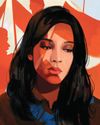
COLLISION COURSE
In Devika Rege’ first novel, India enters a troubling new era.

NEW CHAPTER
Is the twentieth-century novel a genre unto itself?

STUCK ON YOU
Pain and pleasure at a tattoo convention.
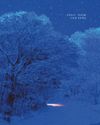
HEAVY SNOW HAN KANG
Kyungha-ya. That was the entirety of Inseon’s message: my name.
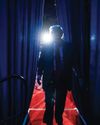
REPRISE
Reckoning with Donald Trump's return to power.
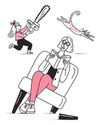
WHAT'S YOUR PARENTING-FAILURE STYLE?
Whether you’re horrifying your teen with nauseating sex-ed analogies or watching TikToks while your toddler eats a bagel from the subway floor, face it: you’re flailing in the vast chasm of your child’s relentless needs.

COLOR INSTINCT
Jadé Fadojutimi, a British painter, sees the world through a prism.

THE FAMILY PLAN
The pro-life movement’ new playbook.
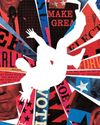
President for Sale - A survey of today's political ads.
On a mid-October Sunday not long ago sun high, wind cool-I was in Harrisburg, Pennsylvania, for a book festival, and I took a stroll. There were few people on the streets-like the population of a lot of capital cities, Harrisburg's swells on weekdays with lawyers and lobbyists and legislative staffers, and dwindles on the weekends. But, on the façades of small businesses and in the doorways of private homes, I could see evidence of political activity. Across from the sparkling Susquehanna River, there was a row of Democratic lawn signs: Malcolm Kenyatta for auditor general, Bob Casey for U.S. Senate, and, most important, in white letters atop a periwinkle not unlike that of the sky, Kamala Harris for President.